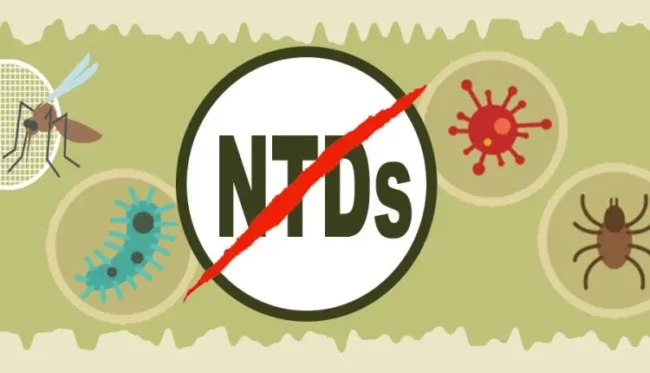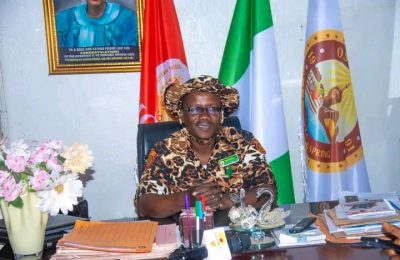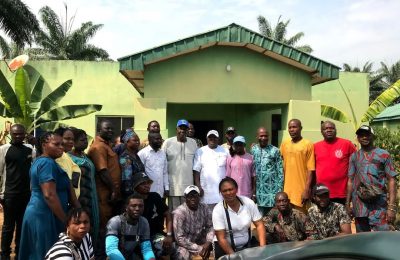

The federal government has revealed that it requires $19 million to effectively eliminate life-threatening Neglected Tropical Diseases (NTDs) in Nigeria.
This move is part of the government’s commitment to tackling NTDs, which have been a major public health concern in the country.

NTDs are a diverse group of conditions caused by various pathogens, including viruses, bacteria, parasites, and fungi.
According to the World Health Organisation (WHO), these diseases primarily affect impoverished communities in tropical areas, though some have a much larger geographical distribution.
Some NTDs include Buruli ulcer, Chagas disease, dengue and chikungunya, leishmaniasis, leprosy, noma, onchocerciasis, soil-transmitted helminthiasis, and lymphatic filariasis, among others.
The National Coordinator for NTDs, Federal Ministry of Health and Social Welfare, Fatai Oyediran, while disclosing this on the second day of a high-level advocacy meeting with commissioners of health from the 36 states and the Federal Capital Territory (FCT) in Abuja, noted that with adequate investment, NTDs can be controlled and ultimately eradicated.
He said, “I confirm that Nigeria needs about $19 million to effectively tackle NTDs. We developed our NTDs master plan in 2023 to run through 2027, and that is exactly what we need to effectively combat NTDs.”
He also noted that it is imperative for all partners to mobilise these resources and plan strategically to fully implement the master plan.
“Once this is done, I’m confident that NTDs in Nigeria will become a thing of the past,” he said.
Oyediran also explained that approximately 1.7 billion people are affected by NTDs globally—a figure more than three times the number of people affected by HIV, TB, and malaria.
He noted that Nigeria, Africa’s most populous nation, accounts for about 50 per cent of the NTD burden in Africa and 25 per cent globally.
Highlighting the impacts of NTDs in Nigeria, he said two of every three Nigerians have at least one NTD.
“These diseases are linked to poverty, unsafe water, poor sanitation, substandard housing, reservoirs for insects, and other disease vectors, while the most vulnerable are children and women,” he said.
Oyediran further identified inadequate funding as one of the primary challenges hindering efforts to combat NTDs in Nigeria.
He, therefore, called for a collaborative approach involving strong political will and support from all levels of government to address these diseases effectively.
“One major challenge in addressing NTDs has been inadequate funding. There are about 21 diseases grouped under NTDs; each of them has its own peculiarities. Adequate funding is essential to effectively implementing all the strategies of controlling NTDs.”
He also highlighted the need for both federal and state governments to allocate sufficient budgets for NTDs, noting that most states currently lack budgetary provisions for these diseases.
“This is one of the reasons we are engaging here today with health commissioners. They are expected to communicate with their governors and ministries of budget and planning to establish a dedicated budget line for NTDs.”
He said this will significantly improve coordination at the state level.
Similarly, the Director of Advocacy and Resource Mobilisation United to Combat NTDs, Stuart Halford, maintained that without adequate funding, the fight against NTDs would remain a challenge.
Halford points out that there are lots of health priorities, but eliminating NTDs is equally important because they contribute to economic and productivity losses.
Meanwhile, the Abia State Commissioner for Health, Enoch Uche, in his opening remarks, disclosed that the state has four endemic NTDs, which include onchocerciasis in 17 LGAs, lymphatic filariasis also endemic in 17 LGAs, soil-transmitted helminthiasis in 16 LGAs, and schistosomiasis in 33 wards.
He said that the state government obtained this data through a case mapping done across the state in 2012.
“Following this, we began mass administration of drugs as a form of preventive measure, which lasted for 10 years. And in 2022, Abia State was certified to have broken the transmission of onchocerciasis and lymphatic filariasis.” He said.
Also, the Kwara State Commissioner for Health, Amina Ahmed, said the state government is making efforts to channel available resources towards addressing NTDs.
The Kwara Commissioner of Health, who is also the Secretary of the Nigeria Health Commissioner Forum, said the state has eradicated lymphatic filariasis and onchocerciasis.
“There are many health challenges being tackled simultaneously. NTDs are so-called because they have not received appropriate attention and funding over the past years,” she said.
“Unless we refocus on them, we will not be able to achieve eradication as intended. Nigeria cannot afford to neglect NTDs and is assured that there are ongoing efforts to raise funds and channel locally available resources towards combating the diseases.”
READ MORE FROM: NIGERIAN TRIBUNE








